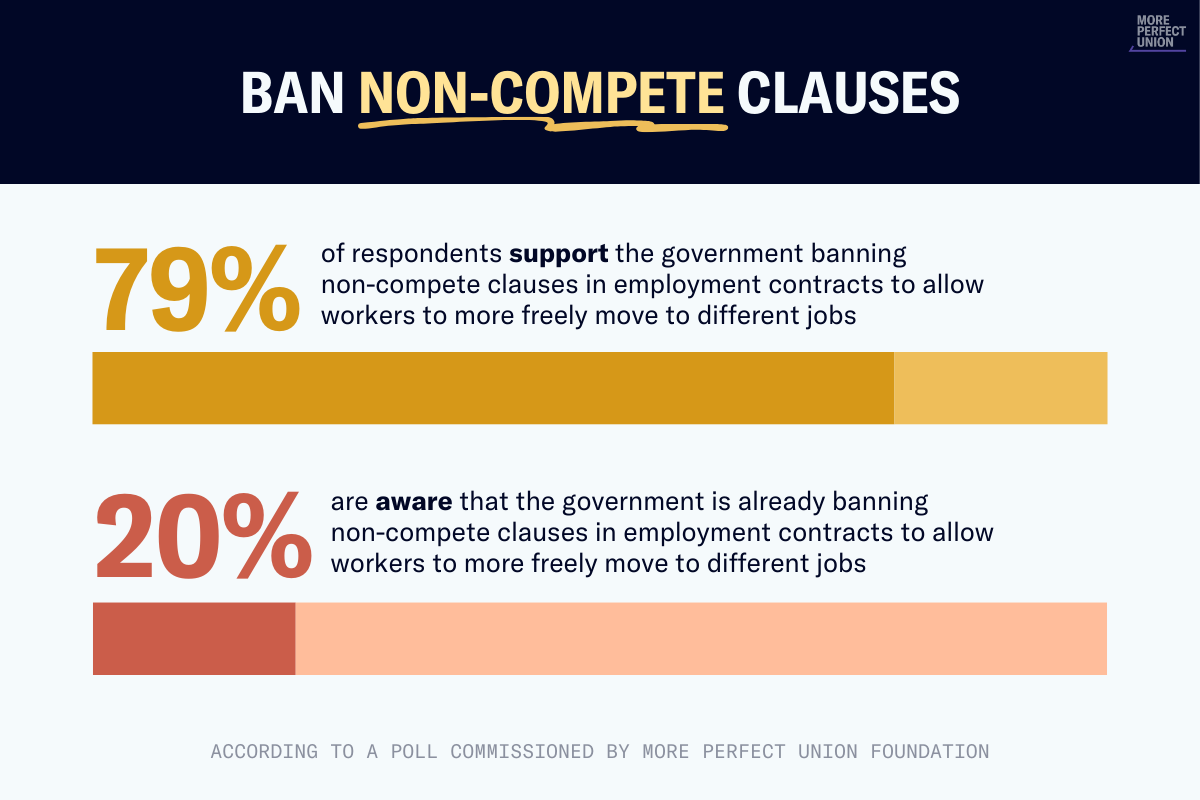New Poll: Government Must Take On Corporate Power, Americans Say
But many Americans don't know that the federal government is currently pursuing a robust regulatory agenda on issues like drug prices and price gouging.
by Jordan Zakarin, More Perfect Union
Americans overwhelmingly oppose corporate monopolies and believe big businesses have amassed too much power and influence, according to a major new poll of seven geographically diverse states commissioned by More Perfect Union Foundation.
The 81 percent of respondents who said they were concerned that corporations were becoming too powerful were indicative of a clear populist backlash against what three-quarters of respondents called an economy that has been rigged for the elites and wealthy.
The survey, conducted by GQR, polled 1,400 respondents in geographically diverse states Michigan, Wisconsin, Pennsylvania, Arizona, Georgia, Nevada, and North Carolina.
The negative sentiment extended to the two richest men in the world, Elon Musk (with a net -9 percent approval rating) and Jeff Bezos (-21 percent), as well as the tax code: Two-thirds of respondents doubted that corporations paid their fair share of taxes.
Inflation continues to weigh on the minds and wallets of respondents, most significantly in the supermarket, as 56 percent of respondents said they had trouble paying for groceries. Medical bills, gas prices, and rent or mortgage payments were also cited as frequent sources of financial stress. Housing was a particular pain point for younger respondents, as 58 percent of respondents under the age of 30 reported trouble with their rent or mortgage.
More than six in ten of the respondents blamed corporate greed and price gouging for the inflation that has made life more difficult to afford. And as for how to rein in corporate power, respondents clearly favored government intervention and rejected long-held axioms about the free market.
A resounding 78 percent of respondents agreed that America needed a “new approach to the economy” that puts people over profits. Those respondents were in favor of taxing the ultra-wealthy to invest in working-class Americans as well as using government power to end corporate tax loopholes as well as break up monopolies, end price gouging, and boost small businesses.
Drilling down more specifically, 62 percent of respondents in these seven states believed that breaking up corporate monopolies would improve competition, lower prices, and rein in the power of big businesses. On the flip side, only 36 percent of respondents agreed that breaking up companies interfered with the market in a negative way or would lead to significant job loss.
As much as respondents in these seven states were bullish on regulating corporations, the second half of the survey, designed to measure public awareness of government interventions currently in progress, found a disconnect between policy and perception. By and large, respondents were far less aware of what the federal government has been doing over the past three years to address some of the biggest pain points caused by monopoly power and a legacy of lax regulation.
Proposed price controls that bring down prescription drug costs enjoyed near-universal popularity: lowering the cost of a key cancer drug hit 91 percent approval, and capping prices on drug inhalers, insulin, and other medical devices won 90 percent. And while a robust 63 percent of respondents were aware that the government was taking action on medical devices, only 29 percent were aware of the effort to reduce the cost of cancer drugs.
This gulf became evident on issue after issue, with respondents expressing popular support for populist policy proposals but registering little awareness of similar actions being pursued by the Biden administration.
Whereas 71 percent of respondents supported hypothetical antitrust lawsuits against corporations such as Ticketmaster, Google, Apple, and Amazon, only 35 percent of respondents were aware that the Department of Justice and FTC are in the midst of prosecuting those cases. Notably, the poll was in the field after Google was found guilty of illegally obtaining a monopoly on internet search.
Even more dramatic was the gulf between support for prosecuting corporate landlords who use algorithmic software to fix prices (72 percent in favor) and those aware that a DOJ lawsuit against clients and founders of RealPage, the most prominent of those programs, is in progress (just 19 percent).
The list goes on:
75 percent of respondents supported compelling banks to reduce overdraft and late fees, but only 31 percent knew that it was the subject of a rule issued by the Consumer Financial Protection Bureau in March;
83 percent were in favor of investigating big oil companies for price gouging on gasoline, yet just 29 percent knew that the FTC is in the process of such an inquest;
73 percent approved making it easier to join a union by penalizing union-busting employers, with 32 percent cognizant of the NLRB’s many efforts to encourage organizing.
And 83 percent of respondents liked the sound of forcing companies to sell products that are easier to repair without needing to return to the dealer, yet only 15 percent knew that the FTC is prosecuting cases on a “Right to Repair” rule.




